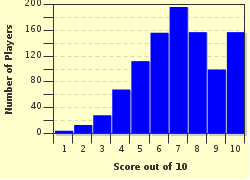Quiz Answer Key and Fun Facts
1. When the First World War broke out in the summer of 1914, most of the British Empire thought it would be over by Christmas. It wasn't, of course, and many men had to spend their Christmas at the front that year, instead of at home with families. They did get Christmas presents, though. Every soldier and sailor fighting on behalf of the British Empire received a Christmas postcard from the King, and a gift box from whom?
2. The tale of the 1914 Christmas 'Truce' on the front is a popular, somewhat idealized, heartwarming story of peace in a time of war. The story generally goes that the 'Truce' began with German soldiers singing which carol?
3. How long did the 1914 Christmas 'Truce' last?
4. At the beginning of the Pacific War in 1941, a Crown colony was attacked on 8 December. A small contingent of Canadian defenders held on for a little more than two weeks, but they eventually had to surrender. Which colony was surrendered to Japan on Christmas Day, 1941?
5. For most Germans, Christmas has traditionally been a very important holiday of the year. That did not change during wartime. Christmas 1942, however, was one of the worst German soldiers would experience. The Sixth Army found themselves trapped but managed to celebrate Christmas anyway, shortly before they were all lost in the New Year. Where did this take place?
6. Was WWII rationing in Britain lifted for the Christmas season?
7. During the Korean War, what were American troops noted for doing at Christmas time?
8. Though nowadays it is often regarded as just another Christmas song played at the mall every year, John Lennon and Yoko Ono's "Happy Xmas (War is Over)" was meant to be a protest song; what were they protesting?
9. Who performed Christmas shows for the American troops in Vietnam, including two from 1970 and 1971 that were aired on television?
10. The US Air Force spent the Christmas season of 1972 destroying North Vietnam from the air. What was the official name of the campaign known as the Christmas Bombings?
Source: Author
guitargoddess
This quiz was reviewed by FunTrivia editor
bloomsby before going online.
Any errors found in FunTrivia content are routinely corrected through our feedback system.

